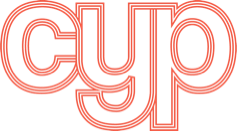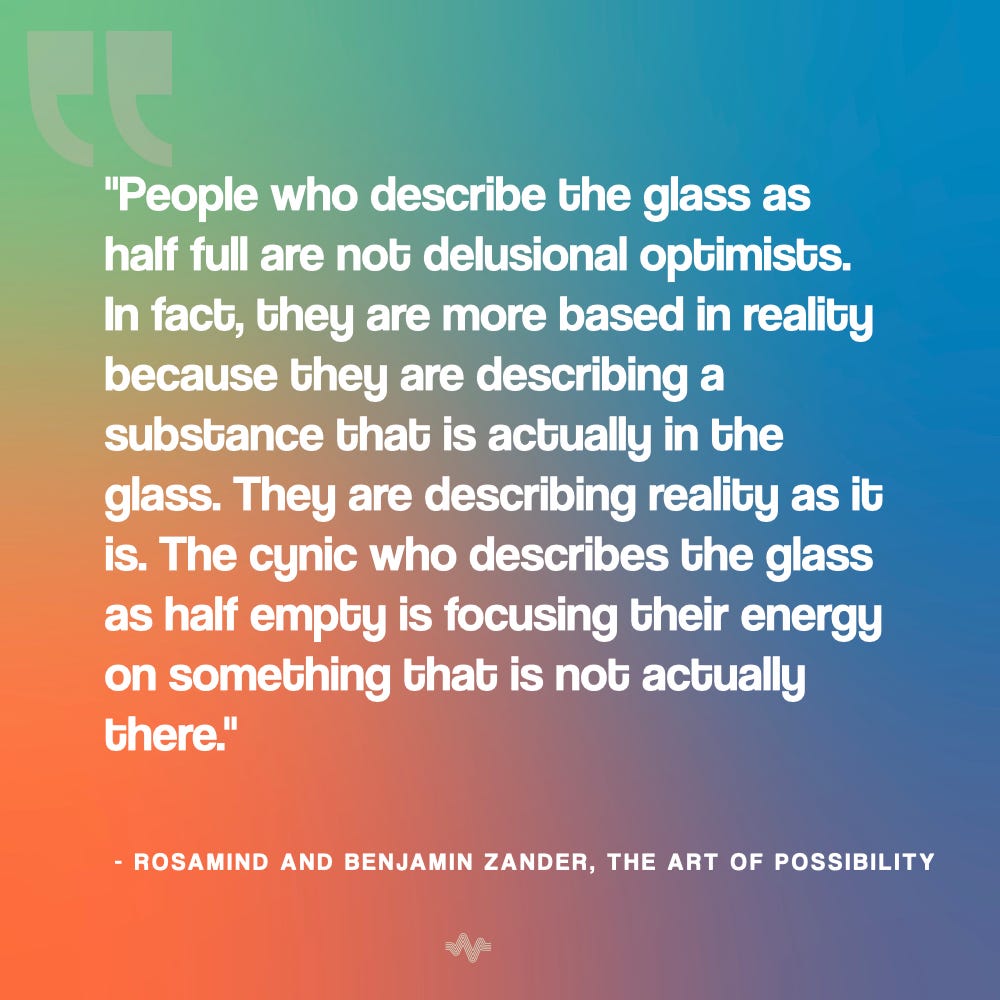 |
Hi, I’m Sari Azout and this is the the 41st edition of Check your Pulse, a tech and startups newsletter designed to make you feel human. I try to make this one of the best emails you get each week. If you’re enjoying it and know someone who’d like this sort of thing in their inbox, they can subscribe here.
Happy Thursday, friends. Or as we call it now: day.
Most of us, it turns out, are non-essential, in the sense that our occupations aren’t needed for the basic functioning of society. So we’re sitting at home, refreshing our Twitter feeds in hopes of finding or developing “a take” that resonates.
This rush to develop “a take” to the rhythms established by Twitter, Medium and the prevailing network of the day favors publishing over reflecting.
And publishing, in general, favors doom and gloom. People don’t like to report optimism out of fear of seeming oblivious.
And so the stories of innovative things companies are doing and new products that are being created go largely unreported.
Here are some of the most creative Covid pivots or product launches I’ve seen:
Canlis, the upscale restaurant in Seattle quickly pivoted to affordable take-out and is offering diners three options: a takeout-only breakfast spot, a burger drive-thru, and a meal delivery service. Their website reads: “In early March, we shut down our dining room. Fine dining is not what Seattle needs right now. Instead, we’re bringing the food to you.”
Chime, the digital bank, fronted stimulus paychecks to some of its customers.
A Texas movie theater turned its parking lots into a drive-in movie theater and sold out every movie.
Dwellito, the maker of prefab homes, launched a prefab mini-office for your backyard.
Peel launched The Touch Tool that which lets you open doors & press buttons without touching them
Haus launched The Restaurant Project to help out local restaurants, by co-creating apéritifs that reflect their culinary approach. All profits will go to the restaurants.
Most startups right now are focused on defense - they’re cutting costs and extending runway. But surviving this crisis doesn’t mean they’ll thrive once it’s over. The ones that will thrive are building new products, developing new capabilities, and reading the room.
And the room reads: consumer spending is slowing down, but consumer culture is speeding up.
Eleven Madison (the most expensive restaurant in NYC) is now a communal kitchen and LVMH is manufacturing hand sanitizers.
Things that once seemed impossible have become inevitable.
In Signaling as a Service, Julian argues that most of our everyday actions can be traced back to some form of signaling or status seeking.
If VC funded DTC brands with a premium mediocre, clean but staged, aspirational millennial bourgeois aesthetic defined the 2010s, something else will define the 2020s.
We are moving away from the aspiration economy and towards the restraint economy. People are socially shaming the greedy and irresponsible. These days, it seems, we want to signal our generosity, our shared humanity, our communal values.
As Ana Andjelic said: Mechanisms of social imitation and self-perception that created a recognizable DTC aesthetic… are also able to make obsolete the economic, social, and political system that has proved inadequate to deal with our global crisis.
If this is the birthing point for a lot of cultural shifts, the question we should be asking is not when will we return to business as usual, but rather how can we transform business as usual into something else, something better, something that aligns with our evolving values.
🙏🏼
Sari
(P.S. As a reminder, I’m donating 100% of classified ad revenue directly to families hurt by the pandemic. If you want to support this initiative while promoting your business to an audience of over 5,000 high quality subscribers, click here to book an ad and scroll down to see this week’s supporters)
 |
 |
Hermes brought in $2.7M in one day for one store in China when they reopened. 🛍️
Prepare for the Ultimate Gaslighting. This piece has been making rounds on social media, and for good reason. This is our chance to define a new version of normal, a rare and truly sacred (yes, sacred) opportunity to get rid of the bullshit and to only bring back what works for us, what makes our lives richer, what makes our kids happier, what makes us truly proud. 🧠
This very polite toddler had no one to say hello to on his morning walk, so he pretended. 🚶🏽
Did you know that if you copy something on your iPhone, you can paste it on your Mac? MY LIFE WILL NEVER BE THE SAME AGAIN. 🤯
Very useful templates to help you say no in any situation. 🕚
Getty artworks were recreated with household items by creative people all over the world. 🖼️
This 30 second video doesn't get good until about the very end, but it gets GOOD.🥚
This excerpt from the book Bullshit Jobs feels more relevant than ever: "Shit jobs tend to be blue collar and pay by the hour, whereas bullshit jobs tend to be white collar and salaried. Those who work shit jobs tend to be the object of indignities; they not only work hard but also are held in low esteem for that very reason. But at least they know they’re doing something useful. Those who work bullshit jobs are often surrounded by honor and prestige; they are respected as professionals, well paid, and treated as high achievers—as the sort of people who can be justly proud of what they do. Yet secretly they are aware that they have achieved nothing…” 🎓
Morgan Housel on what’s next. If everyone agrees how economically destructive this was, the debate will be easy: Laws will be passed installing new unemployment benefits, worker protection regulations, bailout clauses, etc. But if we have 40% of the population whose jobs were completely devastated by the crisis while another 60% didn’t feel much pinch – they may have actually enjoyed having no commute – the debate will be much harder. 👷🏾♀️
Bored.Solutions is a place to find ideas of things to learn, make & do while self-isolating. 🍄
Watch this six minute-documentary if you want to feel hope. At age thirteen, Michael lost both of his arms. He had no drawing ability before the accident, but at age 16, he discovered he could draw with his mouth. 🎨
When asked what the difference between a Product Manager and a UX designer is, Ryan Singer of 37 signals responded: “To put it briefly, the difference between the designer role and the manager role is whether they have the luxury of thinking about one problem at a time” I love this answer! 🤔
This family’s lockdown themed rendition of Les Miserables is really good. 🎤
The parents are not ok 👨👩👦👦
A great excerpt from Sarah Frier’s just-released book about Instagram: Zuckerberg’s purchase of Instagram, considered wildly overpriced at $715 million in 2012, is worth more than $100 billion today. Instagram now delivers $20 billion in annual revenue, more than a quarter of Facebook’s total. And Zuckerberg’s promise to leave the Instagram team largely independent inspired other founders to join Facebook, too. In 2014 he bought WhatsApp for a then-stunning $22 billion, solidifying Facebook’s dominance over modern communication, and paid $2 billion for the virtual-reality company Oculus, whose hardware he hoped would lead the way into the future… People are looking at Facebook’s buy today and thinking “what the fuck?” I’m looking at it and thinking that Facebook is ingenious. They’re one of the few large companies that understands how to and when to acquire. You don’t buy at the peak. You buy on the ramp up to the peak. 📱
 |
Ben Evans on what will last from this period of mandated remote working, shopping and living, and what will not stick. 📔
If you haven’t already maxed out on the “how to navigate the crisis” articles, this one is really good. First Round pulled together all of the advice they’ve been sharing with entrepreneurs. 💯
Dan Grover, a product designer and entrepreneur who formerly lived in Guangzhou, wrote an outstanding piece that documents how Chinese technology companies responded to the coronavirus crisis and argues that Silicon Valley can do more to help. 🇨🇳
How the virus transformed the way Americans spend their money. Among other stats: change in spending on e-scooters is down 100%, fast fashion down 95%, airlines down 92%, fitness & gyms down 75%. 😧
 |
 |
I'm donating all classified ad revenue to families hurt by the pandemic. Click here to book a classified ad - you’re supporting a worthy cause while being seen by an audience of over 5,000 high-quality subscribers.
💤 Sunday Citizen’s mission is simple: comfort first. From crystal weighted blankets to comforters, everything we make is soft as a cloud and easy care. Meet radical softness.
🍫 Revol Snax makes the ultimate sweet treats for keto, paleo, and vegan lifestyles. For those who believe in the low carb lifestyle. Satisfy your sweet cravings with delicious bites!
📝 We wanted a notes app that feels like a real notebook – one that balances simplicity with utility, makes writing delightful, and helps us focus and be present. So we built Minimal.
🏡There is an art to selling fine homes. We position your property in its finest light to showcase its true value. To get a free home valuation click here.
💦LMNT is proud to support the CYP out of work initiative. Our electrolyte drink mixes are used by Navy SEALs & NFL players, intermittent fasters & energy-seeking entrepreneurs
 |
If you’re wondering who’s behind this newsletter:
My name is Sari Azout. I am a design-thinker, strategist, and early stage startup investor at Level Ventures and Rokk3r. My mission is to bring more humanity and creativity to technology and business.
Want more?
Follow me on Twitter, Medium, and Instagram.
Know a founder i should meet?
Drop me a note at sari@level.vc
If you're enjoying this newsletter, I'd love it if you shared it with a friend or two. You can send them here to sign up.
And if you come across anything interesting this week, send it my way! I love finding new things to read through members of this newsletter.
Thanks for being here!

